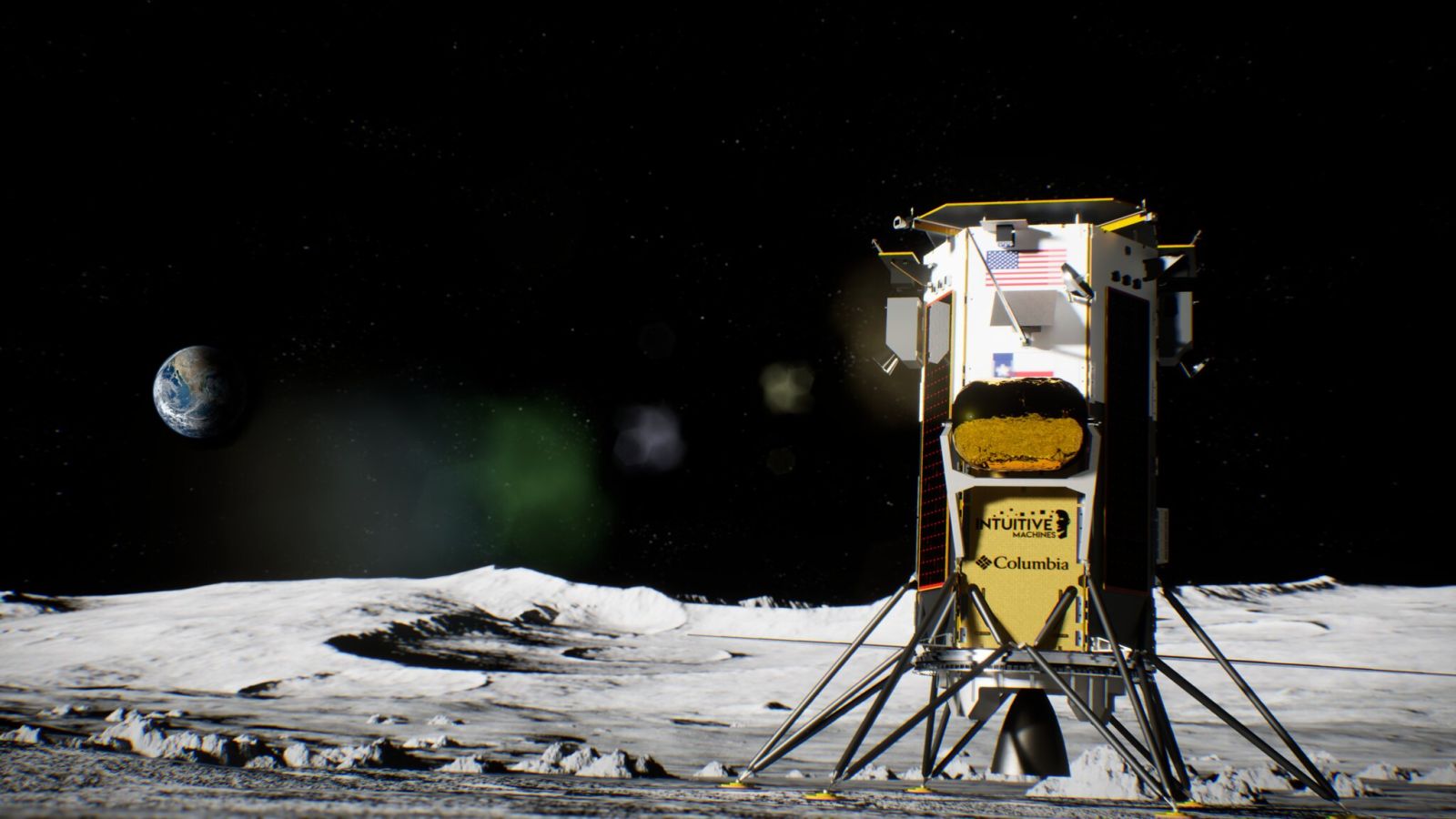SpaceX to Launch This New Private Lunar Lander in Mid-February
Follow us on Google News (click on ☆)
The race to the Moon reaches a new milestone with the imminent launch of Odysseus, a private lunar lander developed by Intuitive Machines. This event marks a turning point in lunar exploration, leveraging collaborations between the private sector and space agencies to breach new frontiers.

An illustration of Intuitive Machines' private Nova-C lunar lander on the lunar surface.
Credit: Intuitive Machines
The robotic spacecraft Nova-C, named Odysseus, was encapsulated in the nose cone of its SpaceX Falcon 9 rocket on January 31, preparing for its launch from Cape Canaveral Space Force Station in Florida. This launch is scheduled for a three-day window in mid-February, with a lunar landing targeted for February 22, near the Malapert A impact crater, located near the Moon's south pole. This region draws significant scientific interest, especially for its potential water ice deposits.
NASA's Commercial Lunar Payload Services (CLPS) program plays a crucial role in this mission, with Odysseus carrying six NASA scientific instruments. These instruments aim to gather data that will pave the way for a permanent human presence on the Moon, as part of NASA's Artemis program. Among these instruments are a laser descent and landing sensor, a camera system to capture the plume created by Odysseus's landing, and a new type of "space-age" fuel gauge, using sensors to measure the amount of propellant remaining in the lander's tanks, a complex task in microgravity.
Intuitive Machines' IM-1 mission also carries six commercial payloads for various clients, highlighting the growing importance of the private sector in space exploration. This mission follows closely after the launch of Astrobotic's Peregrine lander, the first supported by the CLPS program, which unfortunately experienced a fuel leak leading to its loss. The success of Odysseus could therefore represent a turning point, becoming the first private lunar lander to successfully touch down, a feat that would continue to set new benchmarks in the history of lunar exploration.
The success of Odysseus would open new horizons for lunar exploration, demonstrating the potential of partnerships between governmental space agencies and the private sector to accelerate the pace of discovery and innovation in space.